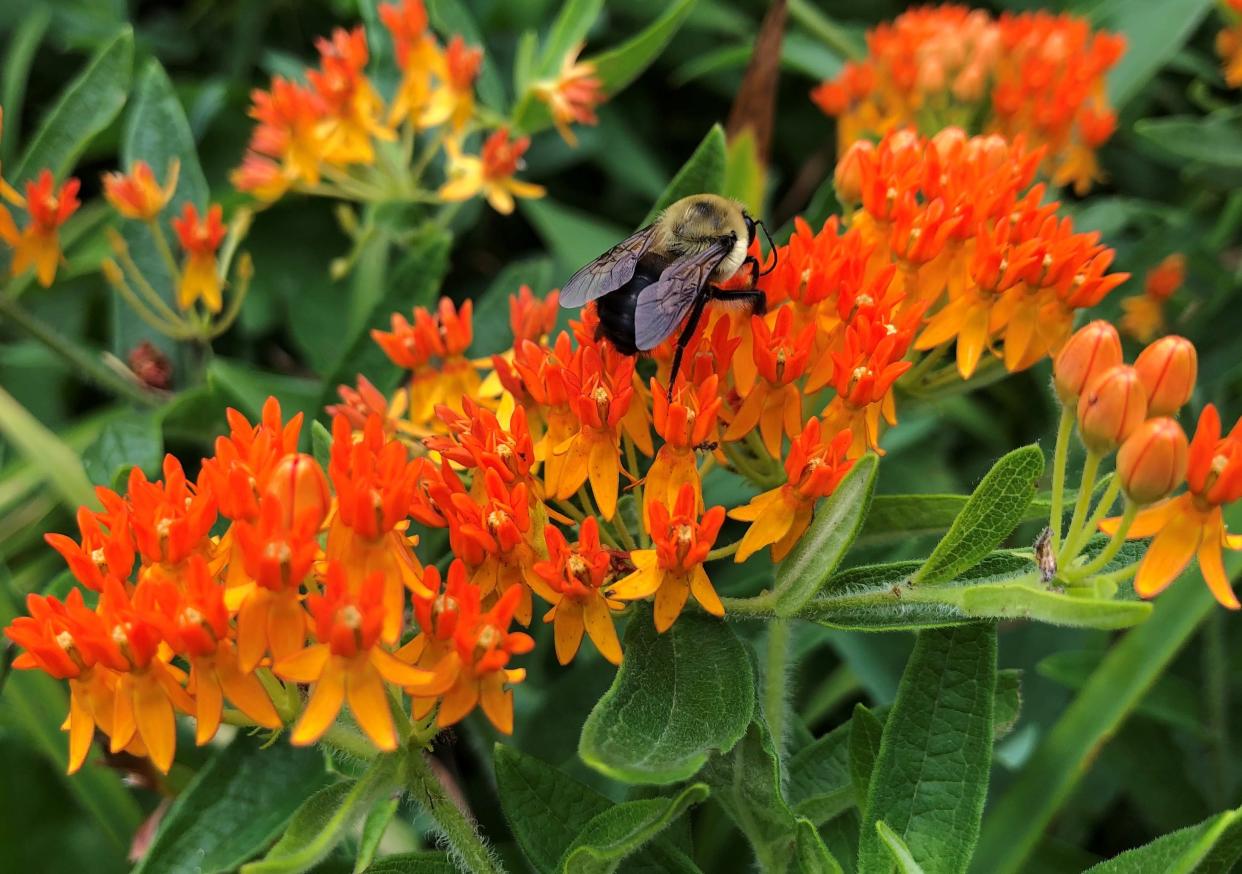Learn how to plant a pollinator-friendly garden. And get it certified. Here's how.

We are in the midst of the international Pollinator Week, a time to raise awareness of the critical importance of pollinating creatures. Specifically, it’s about how we can create and preserve ecosystems that support these bees, birds, butterflies, bats, beetles, moths, wasps and flies.
That means planting native species, especially wildflowers like milkweed and coneflowers. But it also means arranging our gardens and yards so that there’s a variety of plant heights and types and enough cover for tiny species to hide from predators. It isn’t always a perfectly trimmed, vacuumed and mulched look.
There’s also an effort to certify the habitat you already have or that you’re creating to support native wildlife. Pollinator gardens are a great example.
This is a do-it-yourself, online process through the nonprofit National Wildlife Federation, and the $20 fee goes to support the NWF’s efforts to protect wildlife and habitats. You’ll need to show that your wild space provides food for wildlife, water, cover (like shade or protection from predators), resources for animals to raise their young and sustainable practices of using natural methods to maintain your habitat.
Do that at certifiedwildlifehabitat.nwf.org.
The goal of this “community certification” is to document the variety of habitats in our area and see it multiply, says Charlotte Wolfe, owner of Prairie Winds Nature Farm in Lakeville, who heads up about 20 people who are coordinating the effort in northcentral Indiana.
They are there to help as they recruit homes, schools, businesses and organizations. Wolfe would like to see more schools participate. Because it could involve planting a native garden or adapting a school’s landscaping, she says it would work well at schools with Montessori or agriculture programs.
The Wild Ones South Bend Chapter (southbend.wildones.org) is a great resource for learning how to create these habitats. The group meets monthly in South Bend's Pinhook Park community center, 2801 Riverside Drive (next up at 5 p.m. July 1).
Find the Michiana community page for the certification effort linked here in the text of this column online.
For questions, contact Wolfe at Prairie Winds at www.prairiewindsnaturefarm.com.
Learn about pollinator gardens
Drop in June 22 for guided tours of the Butterfly Larva Garden at Fernwood Botanical Garden, 13988 Range Line Road in Niles. Then, in a separate event that day, learn to build a butterfly garden.
The tours will be part of the Pollinator Party from 10:30 a.m. to 12:30 p.m. and will include make-and-take pollinator crafts. This is free after you pay admission to Fernwood and is meant for all ages.
Then, from 1 to 2 p.m., Fernwood will host the workshop with Dolly Foster, an accredited horticulturist, certified arborist and master gardener, who will explain the best plants for attracting butterflies and how to plan gardens to provide food, cover and host plants to support caterpillars and butterflies throughout their life cycles.
The workshop cost is $25 for nonmembers. Learn more and register at www.fernwoodbotanical.org.
Chesterton pollinator project debuts
Celebrate the new, nonprofit Urban Pollinator Project as it cuts the ribbon on the first location where it has installed pollinator-friendly plants at 4:30 p.m. CDT June 21. In this case, it’s at the ever-developing Westchester Migratory Bird Sanctuary, 1150 S. 11th St., Chesterton.
Find columnist Joseph Dits on Facebook at SBTOutdoorAdventures or 574-235-6158 or jdits@sbtinfo.com.
This article originally appeared on South Bend Tribune: Pollinator Week programs help with gardens NWF habitat certification

